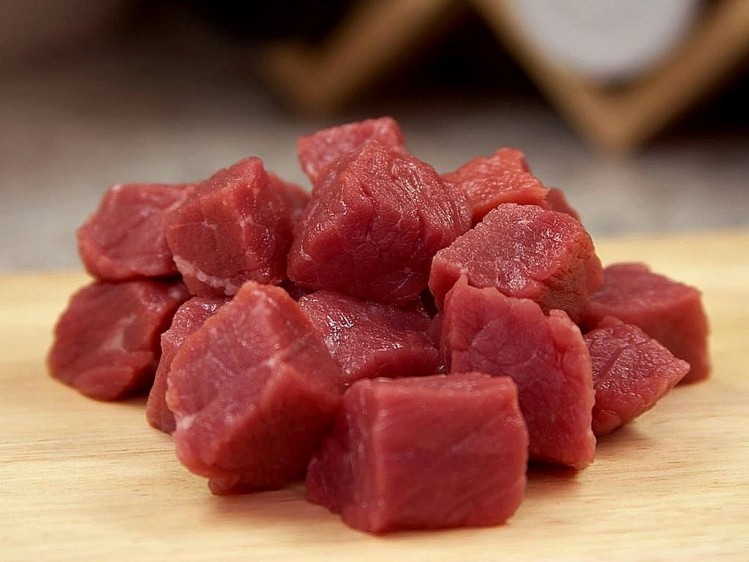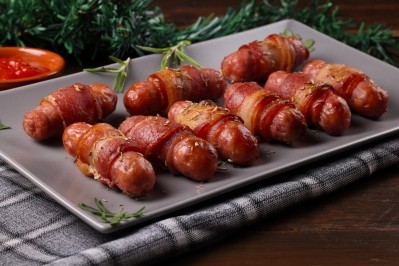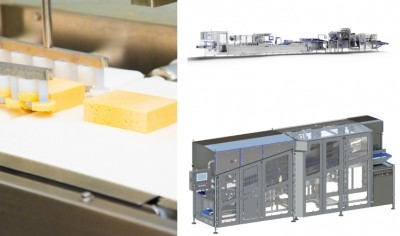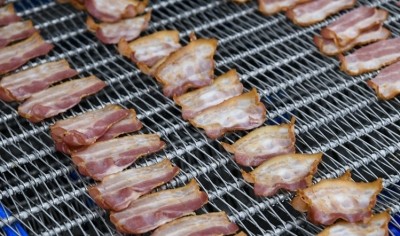Feature
Traditional and cultured meat: The trends to look out for in 2023

Like most of the industry, the meat sector has faced its fair number of challenges in 2022. Rising costs due to the energy crisis and the devastation caused by outbreaks of swine fever and bird flu have led to no end of problems for producers.
Looking ahead to 2023, Hamlet Protein chief executive Erik Visser saw opportunities for growth in animal agriculture and meat processing, but warned that some parts of the industry would not fair as well in the coming year.
“Animal protein production trends vary across geographies,” said Visser. “In general terms we expect a downward trend in Europe and improved market conditions in South East Asia. On a species level we expect growth in poultry and aquaculture, a slight decline in beef and a somewhat stronger decline in pork.”
“The reduction in pork will be mainly driven by Europe where the decline in pig numbers will continue On the other hand we expect China pork demand to increase as Covid restrictions will further ease, generating opportunities for exporting countries.”
Global disruption
With global demand falling, increased capacity and reduced port congestion, spot rates for ocean freight will continue to decline. These disruptions will be driven by the energy crisis, labour shortages and demand imbalance.
“Even though we may see some relief on container freight costs, logistics in the global supply chain in general will continue to suffer disruptions in 2023, impacting reliability and cost levels,” indicated Visser.
Pilgrim’s Pride indicated at the end of last year that pork had overtaken Christmas staples such as turkey in December as the cost-of-living crisis battered the UK consumer’s wallet. Of course, an unprecedented outbreak of bird flu has done much to decimate turkey stocks in 2022, which led to many desperately seeking alternatives for the Christmas dinner table.
In fact, in the month leading up to the festive period, fresh pork increased its share of the wider protein category to 13.3% in terms of value compared to the last four weeks of December 2021.
With consumers forced to make every penny stretch as far as it can, producers have been incentivised to produce affordable alternatives, with pork coming up trumps as a cost-effective solution – products such as gammon and crackling joints became dinner centrepieces.
Rachel Griffiths, chief commercial officer at Pilgrim’s UK, said: “Not only is a gammon joint cheaper, costing around £8 per kilo, compared to a turkey at over £12 per kilo, but it’s also often slow cooked which uses far less energy, and therefore money, than conventional oven cooking. Gammon is incredibly versatile, is simple to prepare and cook and is absolutely delicious.
“Our dedicated teams worked hard – producing over 1.6 million higher welfare, high quality gammon joints and more than 157,000 pork crackling joints – to ensure our retail customers were well stocked for the festive period.”
Bacon yields
When it comes to pork products, bacon has been at the forefront of a number of innovations in recent years – the biggest of which being the scramble to remove nitrites in an effort to curb the consumption of the potentially cancer-causing chemical in food.
But as we move further into 2023 and with manufacturers looking to save money in any way they can, sometimes the biggest innovations in production come from simple changes that can be made on the line. Wicks Manor was one such producer.
Technical director David Couldrey, along with a team from the David Hutchins Innovation Business Improvement Module, set out to improve its Grade A Bacon slicing yield percentage by 5%, giving a potential saving of £39,000. This was in response to a drastic decrease in yield following the installation of a new sliver one year prior to the project.
“The project was set up in a way that was based on collecting factual data about the problem, which enabled us to get to the causes of the problem and assign cost to each of the causes which enabled us to prioritise the work on solutions,” he explained. “We were then able to re-measure after applying the solutions to verify savings.”
As a result, grade A bacon slicing yield percentage increased by 7% giving an annual saving of £59,000. Further data collection following the slicer change identified other issues affecting slicing yields. It was estimated that by rectifying these an additional £20,000 could be saved. Modifications to current equipment and the purchase of a small slicer resulted in a total annual saving of £79,000.
“We have since used the other tools on other lines and have made further savings by reducing process times,” Couldrey continued.
“I can’t go into too much detail on all of the causes as they are understandably sensitive, however, it’s the method of problem identification, data measurement and testing of solutions that is key. This can be applied in any process on any industry.”
More than meat
While the world of traditional meat and animal agriculture looks set to continue on a path of cost saving and meeting sustainability goals, the world of alternative proteins is geared to pick up the baton and race ahead in its plans to offer consumers what they want most from plant-based meats – all the taste but none of the guilt.
For Hoxton Farms, the next big step in the world of plant-based and alternative meats is the use of cultivated fats to make products that look, cook and taste just as good as the real thing. As co-founder Max Jamilly explained, consumers do not want to compromise on these factors when choosing an alternative meat products – they are looking for a product that’s so convincing it’s indiscernible from the real thing.
Last year (2022) saw a number of innovations when it came to producing structured whole cuts such as steaks, chicken breast and pork chops, a far cry from the ‘unconvincing’ world of burgers and sausages that the industry had been languishing in for the past 20 years.
The real thing holding back these products was the oils and fats used in their construction – using plant-based oils meat these meat alternatives didn’t perform as well as a real steak would in the pan, for example.
“Typically, it’s emulsions of things like coconut oil, even palm and vegetable oils, sometimes olive oil, and they don't perform very well and they're difficult to manufacture with,” said Jamilly. “The tastes sucks, the cooking performance and mouth feel are all wrong as well. That's why if you try to make something like a marbled steak or pork belly, you are likely to have a very difficult time.”
Hoxton Farm’s solution has been the development of fats humanely cultivated from animal cells that can be used in plant-based meats. It currently supplies this fat to manufacturers for use in their products in the form of fat ‘marbles’. Through this innovation, Jamilly hopes to see further growth of structured whole cuts of alternative meats.
“Cultivated fat makes that whole lot easier,” he added. “This world of structured meat alternatives – which is currently something like 70% of the dollar value that traditional market but negligible fraction of the plant-based market – will soon rise to match in the plant-based market. That's not all going to happen in 2023 but it's starting.”

![Hoxton Farms Landscape Co-Founders Max Jamilly (left) Ed Steele (right) [photo credit_ Donna Ford]](https://www.foodmanufacture.co.uk/var/wrbm_gb_food_pharma/storage/images/_aliases/large/media/images/hoxton-farms-landscape-co-founders-max-jamilly-left-ed-steele-right-photo-credit_-donna-ford/16065290-1-eng-GB/Hoxton-Farms-Landscape-Co-Founders-Max-Jamilly-left-Ed-Steele-right-photo-credit_-Donna-Ford.jpg)

















